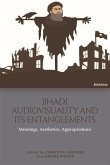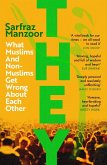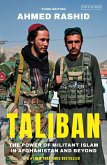Explores the use of images, sounds and videos in Jihadi media and how people engage with them ISIS is often described as a terrorist organisation that uses social media to empower its supporters and reinforce its message. Through 12 case studies, this book examines the different ways in which Jihadi groups and their supporters use visualisation, sound production and aesthetic means to articulate their cause in online as well as offline contexts. Divided into 4 thematic sections, the chapters probe Jihadi appropriation of traditional and popular cultural expressions and show how, in turn, political activists appropriate extremist media to oppose and resist the propaganda. By conceptualising militant Islamist audiovisual productions as part of global media aesthetics and practices, the authors shed light on how religious actors, artists, civil society activists, global youth, political forces, security agencies and researchers engage with mediated manifestations of Jihadi ideology to deconstruct, reinforce, defy or oppose the messages. Key Features ¿ Fosters theoretical approaches to audiovisuality in the context of 'propagandistic' imagery ¿ Points to strategies and logics of appropriation within and around Jihadi audiovisuality, such as humour, re-enactments and memetic forms of cultural resistance ¿ Considers cultural and aesthetic expressions that evolve in response to Jihadi media output ¿ Presents empirically grounded research, combined with historical, multi-modal, rhetorical, ethnomusicological and digital audio-visual analysis and interpretations ¿ Case studies include: an exploration of: staged violence in IS productions; the appropriation of IS's nashid S¿alil al-S¿awarim in digital contexts; the responses by social workers and former supporters of jihadi groups and movements; and how researchers themselves are part of the entanglements caused by politicisation and securitisation of Islam Christoph Günther is the Principal Investigator and Simone Pfeifer is a Postdoctoral Researcher of the junior research group 'Jihadism on the Internet: Images and Videos, their Dissemination and Appropriation' at the Department of Anthropology and African Studies, Johannes Gutenberg University of Mainz.








